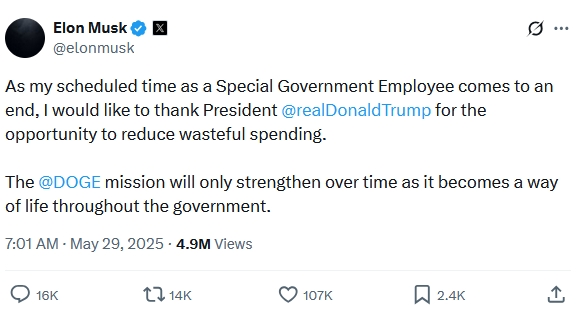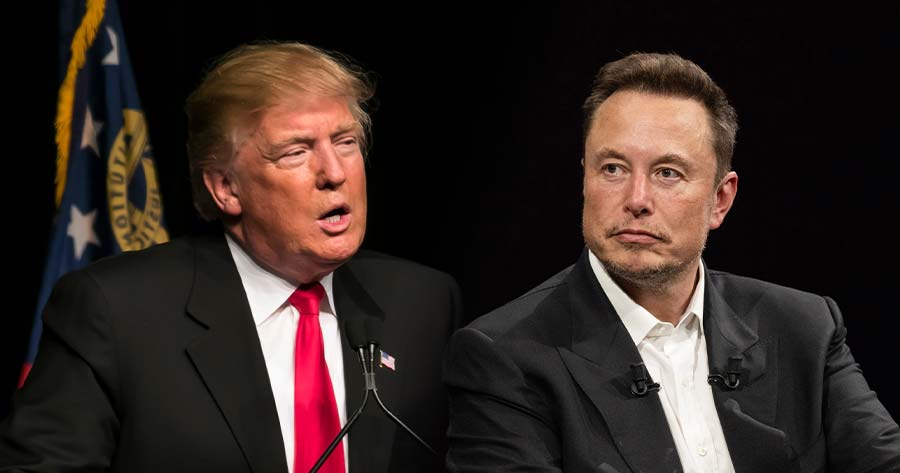Elon Musk has formally announced his departure from the Trump administration, ending his role as a key advisor after just over four months. The Tesla CEO had been instrumental in leading the Department of Government Efficiency (DOGE), President Trump’s initiative aimed at slashing government spending.
Musk’s 130-day term as a special government employee was projected to conclude around May 30, 2025. Throughout his tenure, DOGE orchestrated a sweeping cost-reduction campaign, resulting in the elimination of several federal programs, including USAID. The aggressive downsizing ignited sharp criticism both domestically and internationally.

Despite Musk’s exit, White House officials have stated that DOGE will forge ahead with its mission to restructure and contract the federal government. The effort has already yielded substantial changes: within months, nearly 12% of the federal civilian workforce—approximately 260,000 positions out of a 2.3 million total—was cut, according to a Reuters analysis. These reductions came through a combination of voluntary buyouts, early retirement incentives, and the threat of layoffs.
Musk’s decision to step down was reportedly influenced by mounting dissatisfaction with President Trump’s budget for the coming year, which proposes multi-trillion dollar tax cuts and a considerable increase in defense expenditures. The proposal, which prioritizes military investment over domestic spending, has been at the heart of growing discord between the White House and some of its advisors.





